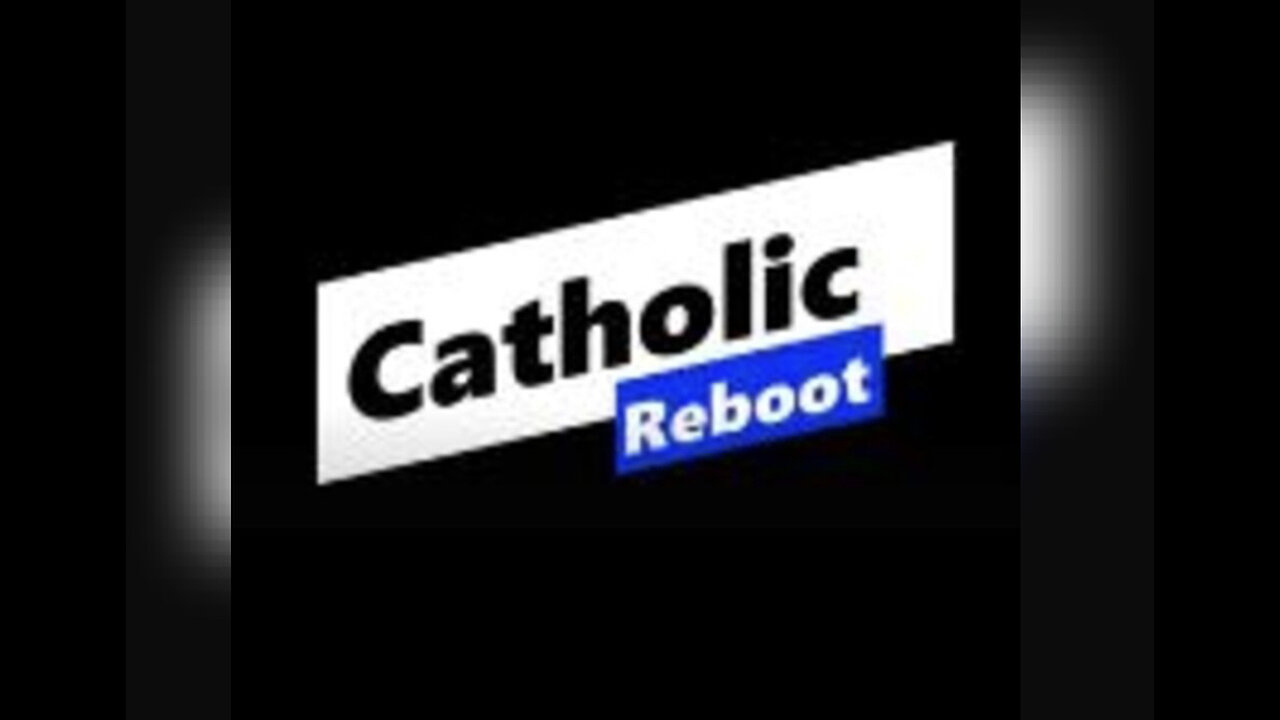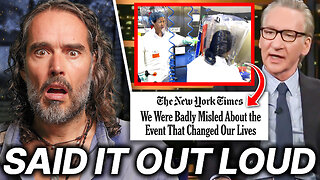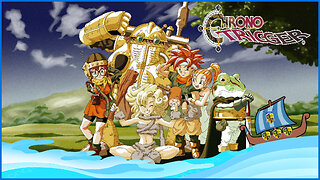Premium Only Content

Episode 1855: St Gregory II
St. Gregory II, also known as Gregory II the Younger, was a significant figure in early medieval Christianity, particularly in the Roman Catholic Church. He served as the Bishop of Rome and thus the Pope from May 19, 715, until his death on February 11, 731. His papacy occurred during a tumultuous time in Europe, marked by the ongoing conflict between the Byzantine Empire and the expanding Islamic Caliphate.
Born in Rome, Gregory II's early life is not extensively documented. However, he was known for his devoutness and commitment to the Church. He became pope in the midst of political and religious upheaval. The Byzantine Empire, which had traditionally exerted influence over the Papal States, was in decline, while the Islamic expansion threatened not only Byzantine territories but also the Italian peninsula.
During his papacy, Gregory II faced significant challenges, including the iconoclasm controversy. Emperor Leo III of the Byzantine Empire had initiated a movement against the veneration of religious images, known as iconoclasm, which caused great division within the Christian world. Gregory II staunchly opposed iconoclasm, defending the use of icons and vigorously opposing the Byzantine Emperor's policies. His firm stance on this issue solidified his reputation as a defender of orthodoxy within the Catholic Church.
The iconoclasm controversy was a theological and political conflict within the Byzantine Empire during the 8th and 9th centuries. The term "iconoclasm" comes from the Greek words "eikon," meaning "image," and "klasma," meaning "to break." It refers to the movement against the veneration of religious images, particularly icons and other forms of sacred art, within the Christian Church.
The controversy arose primarily over differing interpretations of the Second Commandment, which forbids the making and worship of graven images. While some interpreted this commandment as a prohibition against any form of religious imagery, others argued that it referred specifically to the worship of idols and not to the veneration of images used for religious instruction and devotion.
The iconoclastic movement gained traction during the reign of Emperor Leo III (717–741) in the Byzantine Empire. Leo, influenced by various theological and political motivations, issued an edict in 726 that ordered the removal and destruction of religious images from churches throughout the empire. This sparked widespread opposition and controversy, as many Christians viewed icons as essential elements of their faith and spiritual life.
The iconoclasts, led by Leo III and later his successors, argued that the use of religious images led to idolatry and detracted from the worship of God. They believed that the veneration of icons constituted a violation of the Second Commandment and a departure from pure Christian worship. As such, they sought to purify the Church by eliminating what they perceived as idolatrous practices.
Opponents of iconoclasm, known as iconophiles or iconodules, countered that religious images served as aids to devotion and as visual representations of the divine. They argued that the veneration of icons did not constitute idolatry but rather fostered a deeper spiritual connection with God and the saints. Many iconophiles also believed that the incarnation of Christ validated the use of images in Christian worship, as Christ himself was the ultimate "image" of God.
The iconoclastic controversy led to widespread division and conflict within the Byzantine Empire and the broader Christian world. It also had significant political implications, as the debate over religious images intersected with questions of imperial authority and the role of the Church in society.
The controversy persisted for over a century, with periods of iconoclastic persecution followed by periods of iconophile resurgence. Ultimately, the Second Council of Nicaea in 787 affirmed the veneration of icons as legitimate within the Christian Church, settling the theological debate in favor of the iconophiles. However, iconoclasm resurfaced intermittently in subsequent centuries, reflecting ongoing tensions between differing theological perspectives and political interests within the Byzantine Empire and beyond.
Gregory II also worked to strengthen the temporal power of the papacy, asserting the authority of the Bishop of Rome over ecclesiastical and political matters. He supported the expansion of papal territories and worked to establish alliances with secular powers, particularly the Frankish Kingdom under Charles Martel and later his son, Pepin the Short.
Furthermore, Gregory II played a crucial role in missionary efforts throughout Europe, supporting the spread of Christianity among the Germanic tribes. He sent missionaries to various regions, contributing to the Christianization of Europe during the early Middle Ages.
Gregory II's papacy was marked by his efforts to maintain the independence and integrity of the Catholic Church amidst political turmoil and external threats. He is remembered as a strong and principled leader who defended orthodox Christian doctrine and expanded the influence of the papacy during a challenging period in European history. His legacy continues to be honored within the Catholic Church, and he is venerated as a saint, with his feast day celebrated on February 11th.
-
 16:13
16:13
Russell Brand
1 day agoBill Maher EXPOSES Covid Lab Leak Lies LIVE ON AIR
53.1K184 -
 1:51:47
1:51:47
Steve-O's Wild Ride! Podcast
2 days ago $2.21 earnedBryan Johnson Helps Steve-O Rebuild His Body After Decades Of Abuse
12.4K4 -
 LIVE
LIVE
Streamstorian
59 minutes agoRPG Saturday | Chrono Trigger!
158 watching -
 LIVE
LIVE
ttvglamourx
57 minutes agoSURPRISE SATURDAY STREAM !DISCORD
60 watching -
 LIVE
LIVE
RaikenNight
2 hours agoLets Get Our Hunt On!! Then We Build Some Warhammer Minis
442 watching -
 LIVE
LIVE
Bare Knuckle Fighting Championship
2 hours agoCountdown to BKFC FIGHT NIGHT MANCHESTER & FREE LIVE FIGHTS!
72 watching -
 LIVE
LIVE
Sm0k3m
1 hour agoIcarus
81 watching -
 LIVE
LIVE
Flexible Games
2 hours agoChilling in Vintage Story 1.20 MP
79 watching -
 LIVE
LIVE
Pepkilla
3 hours agoYour favorite Asian ~
234 watching -
 31:28
31:28
CatfishedOnline
16 hours agoWoman INSISTS Boyfriend Is Trapped Overseas Or Romance Scam?
16.6K9